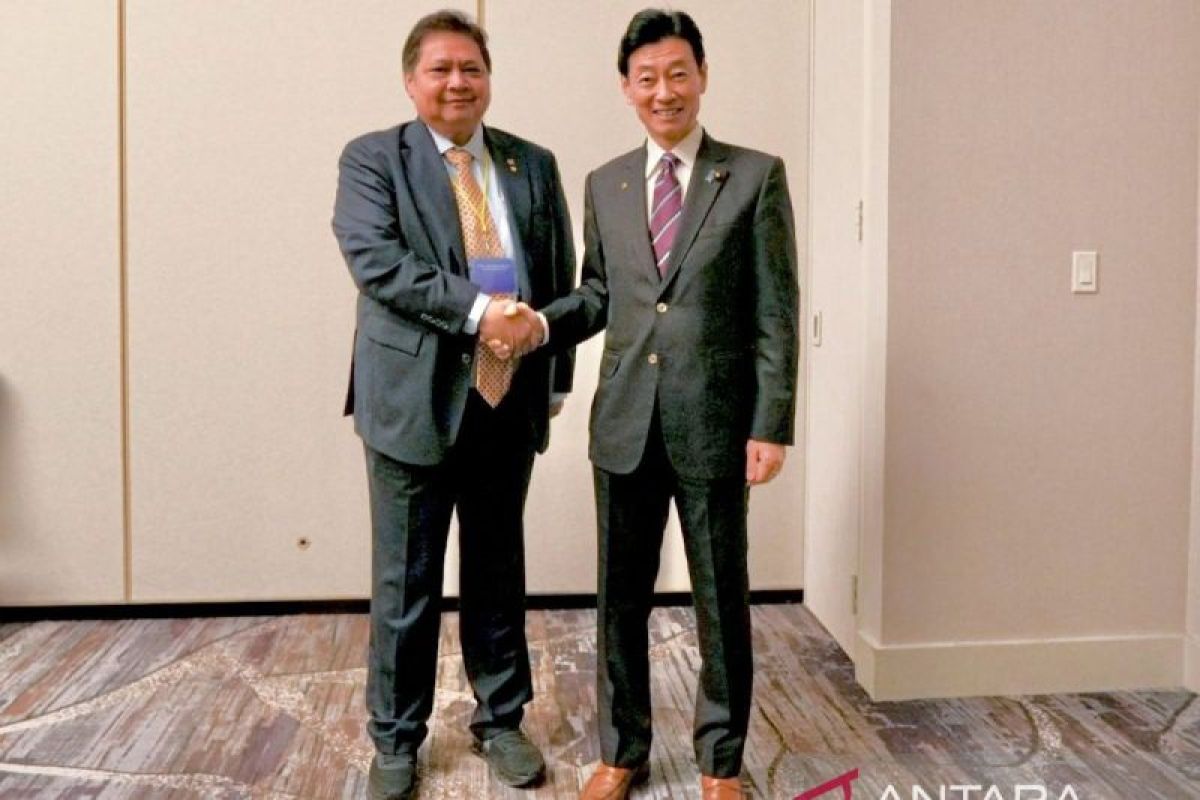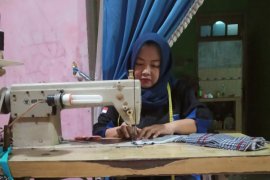
Indonesia, Japan plan to accelerate energy transition at IPEF meeting

Jakarta (ANTARA) - Indonesian Coordinating Minister for Economic Affairs, Airlangga Hartarto, and Japanese Minister of Economics, Trade, and Industry, Nishimura Yasutoshi, discussed opportunities for economic cooperation and accelerating energy transition between both nations.
The discussion took place on the sidelines of the Indo-Pacific Economic Framework for Prosperity (IPEF) Ministerial Meeting in San Francisco, the United States.
"The meeting discussed the exploration of cooperation opportunities in various sectors, such as renewable energy, technology, infrastructure, fisheries, and the negotiation progress in IPEF," Hartarto noted in an official statement received on Wednesday.
At the start of the meeting, Minister Yasutoshi expressed his keenness to immediately complete all IPEF pillars in substance that is expected to strengthen the industrial sector, accelerate the energy transition process in accordance with the Asia Zero Emission Community (AZEC) initiative, and Japan's plan to strengthen cooperation with all ASEAN countries through IPEF.
In addition, Japan has received cabinet approval to allocate around US$1 billion through concrete projects for IPEF.
"We look forward to cooperation with Japan in Pillar 2, Pillar 3, and Pillar 4 of IPEF," Minister Hartarto told Minister Yasutoshi.
He affirmed that the first pillar of IPEF still cannot be completed in the wake of various issues in several chapters that require further discussion, including the matter of critical minerals.
This issue is in line with President Joko Widodo's statement regarding the importance of strengthening critical mineral supply chains during a bilateral meeting with US President Joe Biden.
Minister Hartarto then highlighted the importance of developing electric vehicles (EVs), as 90 percent of Indonesian vehicles are Japanese products.
Hence, he expressed hope that Japanese business owners would realize cooperation in accelerating the development of EVs in Indonesia. He also invited Japan to work together on clean energy projects.
"Indonesia has great potential for New and Renewable Energy (NRE), including solar panel energy and geothermal energy, (and) we invite Japan to invest in this sector," he stated.
Regarding digitalization, Japan is open to in-depth discussions regarding digital issues that are currently becoming Indonesia's main focus and hopes that digitalization can help develop the micro, small, and medium enterprises (MSMEs) industry in Indonesia.
Meanwhile, Minister Hartarto stated that the semiconductor industry in Indonesia has vast potential as a producer of silica, which is the semi-conductor raw material needed by the world.
Hence, Indonesia is focusing on popularizing its world semiconductor industry as an alternative market to China.
"Indonesia needs investment and cooperation from Japan in developing digital infrastructure and improving the quality of Indonesian student human resources for the development of this industry," Hartarto revealed.
Closing the bilateral meeting, Minister Yasutoshi expressed hope that the two countries would overcome trade barriers, including in agro and fishery products.
Minister Hartarto also expressed hope for balanced market access for Indonesian fishery products in Japan and Japanese quality fishery products in Indonesia.
Baca juga: Indonesia and Japan agree on Rp3.9 trillion loan to mitigate disasters
Pewarta: Bayu Saputra, Resinta Sulistiyandari
Editor:
Edhy Susilo
COPYRIGHT © ANTARA 2026

